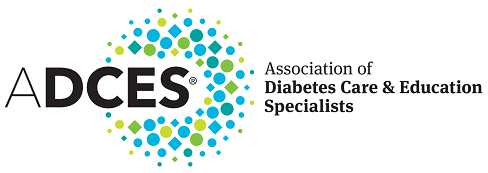
Becoming a Diabetes Care and Education Specialist
Join the thousands of health care professionals who have realized their passion for working as diabetes care and education specialists (DCES).
Become a DCES
How to Become a DCES or Diabetes Educator
Diabetes care and education specialists provide collaborative, comprehensive and person-centered care and education to people with diabetes and cardiometabolic conditions. They've achieved a core body of knowledge and skills in the biological and social sciences, communication, counseling, and education and have experience caring for people with diabetes and related conditions.
We often get asked, “How do I become a diabetes care and education specialist (DCES),” so we want to address it. It’s challenging to answer since there’s no universal path to
becoming a diabetes care and education specialist, also known as a diabetes educator.
At some point in their careers, health care professionals chose to specialize in diabetes care and education. Many will say it’s their calling, and they can’t think of doing anything else professionally. Members of this specialty encompass a diverse set of health disciplines, including nurses, dietitians, pharmacists, physicians, mental health professionals, podiatrists, optometrists, exercise physiologists and others.
Certifications
CDCES and BC-ADM Credentials
We recommend all who choose to become a diabetes care and education specialist pursue certifications, since this reinforces your expertise in the specialty. Certifications such as the Certified Diabetes Care and Education Specialist (CDCES), previously known as Certified Diabetes Educator or CDE, and/or the Board Certified - Advanced Diabetes Management (BC-ADM®) credentials can add value to your role and showcase your knowledge of diabetes and related conditions.
.png?sfvrsn=9e9d6059_4)
Getting Started
Advice From Current Practitioners and From CBDCE
Listen in as ADCES® staff clinicians talk about how they became a diabetes care and education specialist and learn from the experts at the Certification Board for Diabetes Care and Education.
DCES Advice

Benefits of Mentoring
Advice from your colleagues in diabetes care:
- Find someone to shadow to see if it’s really something you would enjoy.
- Do some volunteering to help you with your hours and have something to put on your resume.
- Start going to ADCES meetings and networking.
- Get involved with ADA or JDRF chapters and advocacy.
- Look into public health settings; many of them provide on-the-job training, as do some diabetes centers.
- Do your homework and find comprehensive resources that can give you a solid grounding in the specialty. A great resource is the Art and Science of Diabetes Care and Education publication.





